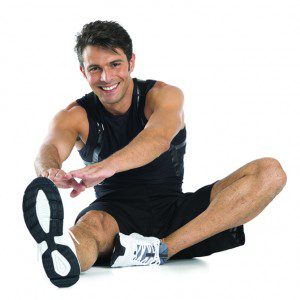 Men’s health month might kick-start you to do a few more sit-ups, maybe visit the doc or even get the prostate exam you’ve been putting off. But let’s face it, much like New Year’s Resolutions, your good intentions set forth during June will probably lessen by the 4th of July. So let’s look at health as less of a daily commitment to change your habits and more of a generational focus on what should be important to you during the different stages of your life in regards to health and wellness. Here we go:
Men’s health month might kick-start you to do a few more sit-ups, maybe visit the doc or even get the prostate exam you’ve been putting off. But let’s face it, much like New Year’s Resolutions, your good intentions set forth during June will probably lessen by the 4th of July. So let’s look at health as less of a daily commitment to change your habits and more of a generational focus on what should be important to you during the different stages of your life in regards to health and wellness. Here we go:
IN YOUR 20’s:
What to Work On:
Focus on speed and strength training. Low reps with heavy resistance will be your friend for building lean muscle to see you through your 20’s. Nothing is more important than keeping correct form. Work with a trainer to find your rhythm, your limitations and to help define obtainable goals.
What to Eat:
You may feel invincible at this stage in life but overeating the junk food will come back to haunt you in your 30’s. Lean proteins is where it’s at. 30% of your calorie intake should come from lean proteins like chicken, fish or dairy. Eat 1 gram of protein for every pound you weigh or for what your goal weight is. If you want to weigh 190, eat 190 grams of protein each day.
IN YOUR 30’s:
What to Work On:
Do you feel that metabolism slowing down a bit? Now is the time to work on getting that heart rate up to burn calories. Interval training will help you burn more calories per hour than a steady workout. Are you bored with your routine? Now is the time to try some group exercise classes. Kickboxing, high intensity interval training, Spinning® and others are all classes you can take at your local YMCA to keep yourself engaged and interested.
What to Eat:
To ward off that slowing metabolism and problems like high blood pressure, diabetes and heart disease, starting eating your greens and stay away from quick energy fixes. Continue to focus on lean proteins but add in high-fiber fruits and veggies like apples and spinach. Foods higher in fiber will keep you fuller longer and help fight off high-carb snacking. Get plenty of water and eliminate the high-sugar drinks if you still drink them!
IN YOUR 40’s:
What to Work On:
Injury prevention. Start paying attention to those aching joints or that sore back. Evaluate your daily activities and routines for places you could add in proper stretching to ward off those subtle signs of aging. This is another point in life where you might want to consider a session or two with a personal trainer. You might have already gone through some physical therapy for a bulged disc or torn muscle and you now have to work twice as hard to prevent reinjuring yourself. Trainers can be the bridge between preventing injuries and still staying in shape.
What to Eat:
Eat the rainbow. No really, when planning your day try to hit fruits and vegetables that are all different colors. Green spinach, oranges, yellow squash, red grapes and more. By now you may have identified some specific trouble areas like losing muscle or adding a few extra pounds. This is the time to work with a dietician or nutritionist to customize your eating for your specific needs. Attend free seminars or reach out your local wellness center like the YMCA to get introduced to someone who can help.
50’s AND BEYOND:
What to Work On:
Continued flexibility and aerobic exercise. Get in at least 30 minutes of exercise 5-6 days per week. It can be as simple as a walk or as hard as a spin class. Just keep moving. Muscle loss occurs twice as fast in sedentary men over 50. If you aren’t lifting weights, it’s not too late to start. Don’t forget to work out your mind as well. Challenge yourself with crosswords, Sudoku, chess or card games to keep your brain as healthy as your body.
What to Eat:
Bone health and health should be your focus if no other prevailing medical issues are present. If you’re not taking supplements, now is the time to consider calcium, multi-vitamins and omega-3. Monitor or restrict your intake of salt and sugar and make sure you’re getting enough water throughout the day. All of these things should be discussed with your primary physician or a dietician.
For more advice, consider contacting your Greater Naples YMCA, 5450 YMCA Road or (239) 597-3148 where a team of trainers, dieticians and instructors can help guide you to a program that is best for your needs.
Greater Naples YMCA | 5450 YMCA Road, Naples, FL 34109 | (239) 597-3148





